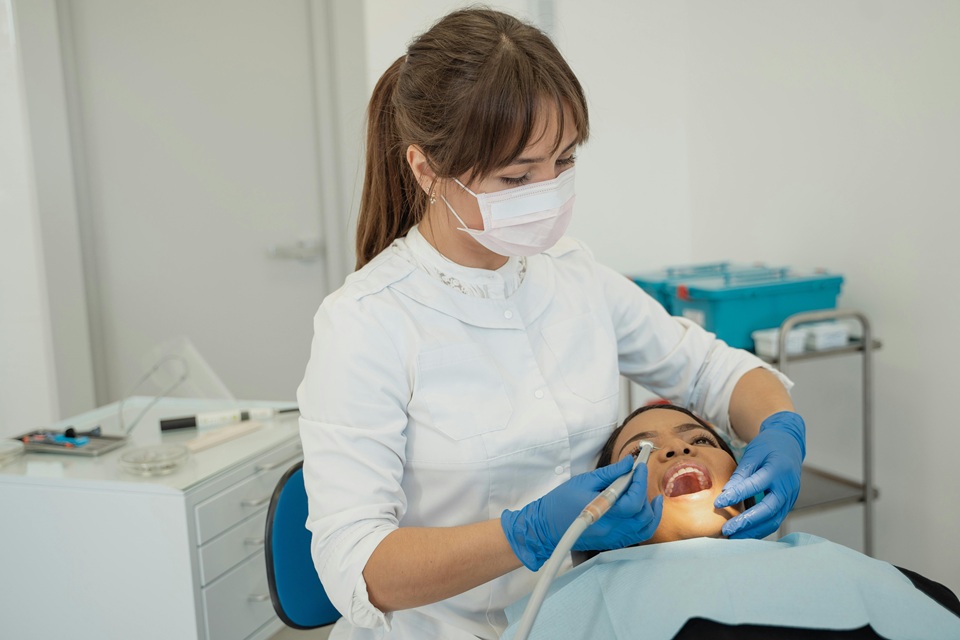
Introduction: The Value Of A Healthy Smile
A healthy smile is far more than an aesthetic asset; it’s a gateway to confidence and overall health. Smiling broadly often reflects good oral hygiene, which can significantly enhance personal and professional interactions. According to experts, maintaining oral health is linked with reducing the risks of heart disease and other chronic conditions, underscoring the widespread benefits of daily dental care.
The website https://montrosefamilydental.com/ provides information and resources for individuals looking to explore effective dental practices in greater depth. These guidelines make cultivating a routine that promotes a radiant smile and a healthy lifestyle more attainable. Embracing these practices can transform not only how you look but also how you feel, making them essential to daily life.
Daily Oral Hygiene Practices
The foundations of oral health are built on simple daily routines, starting with brushing and flossing. Cleaning your teeth with fluoride toothpaste twice daily for two minutes reduces plaque accumulation and combats cavities. Many neglect this step by rushing through their routine, but dedicating time to brushing every surface, including the back molars, where debris often hides, is crucial for comprehensive care.
Flossing once a day is indispensable yet frequently overlooked. It removes stubborn food particles and plaque from between teeth and along the gum line where toothbrushes can’t easily reach. Incorporating mouthwash can further support oral health by reducing bacteria and freshening breath. Lastly, dedicating a few seconds to cleaning your tongue will eliminate bacteria that may cause bad breath, completing an effective daily hygiene routine.
The Role Of Nutrition In Oral Health
The relationship between diet and oral health cannot be overstated. Nutrient-rich foods empower the body’s natural defenses against oral diseases. Dairy products, leafy greens, and nuts supply calcium and phosphates, replenishing minerals lost to acidic foods and drinks. Crucial vitamins, such as vitamin C, found in citrus fruits and green leafy vegetables, support gum health by aiding collagen production.
Sugar, while tempting, is notorious for its role in tooth decay and should be consumed sparingly. It combines with bacteria in plaque to produce acids that attack tooth enamel—grappling with these effects? Substitute sugary snacks with healthier alternatives like nuts or cheese. Water also plays a key role, acting as a natural mouth cleanser by washing away food particles and keeping saliva levels optimal for defending against tooth decay.
Regular Dental Check-Ups
Few habits are as impactful to oral health as regular dentist visits. Dental professionals do more than assess the condition of your teeth and gums. They provide peace of mind by screening for issues that aren’t visible or painful yet, like cavities or gum disease, which tend to develop silently. Catching these problems early means simpler, less expensive, and more effective treatment.
Routine check-ups often include professional cleanings that remove tartar and surface stains, leaving your mouth refreshed. While twice-yearly visits are standard, your dentist might suggest more frequent visits based on individual health needs or particular concerns. Adhering to personalized schedules allows dental professionals to provide optimal care tailored to your unique requirements.
Preventing Common Oral Health Issues
Targeting prevention can significantly reduce the risk of common dental problems. Cavities and gum diseases, for instance, stem from poor dental hygiene and can lead to severe complications if left untreated. Regular brushing and restorative fluoride products offer a solid defense against tooth decay.
Understanding preventative measures is vital, and detailed resources are widely available. Exploring techniques such as interdental cleaning and choosing the right dental products are additional steps you can take. To get updated on practical methods, seek out detailed prevention strategies that align with your dental health goals, fostering oral and holistic health.
The Impact Of Stress On Your Teeth
Modern life’s daily stresses often extend beyond our emotional and mental states, seeping into oral health. These stresses include bruxism (teeth grinding), jaw clenching, and neglect of oral hygiene routines. Over time, they can lead to wear and tear, cavities, and even temporomandibular joint disorder (TMJ).
Easing stress through yoga, meditation, or leisure walks can mitigate its harmful effects. Awareness of these stress-relieving habits and regular dental consultations can preserve physical and mental health.
Choosing The Right Dental Products
With the vast array of oral care products on the market, choosing the most appropriate ones can be overwhelming. Start with a toothbrush—the backbone of your routine. A soft-bristled brush is typically recommended to clean teeth without eroding enamel or irritating gums.
Select fluoride toothpaste to fortify enamel, and consider fluoride mouth rinses for additional protection. Look for products endorsed by reputable dental organizations. Scanning current product reviews can also increase your understanding, ultimately guiding you toward informed choices.
Conclusion: Your Path To Optimal Oral Health
Achieving optimal oral health hinges on consistently implementing straightforward practices every day. These include maintaining a nutritious diet, managing stress, visiting your dentist regularly, and choosing the right oral care products. With these strategies, the path to a brighter smile and improved overall health lies just a mile away.





